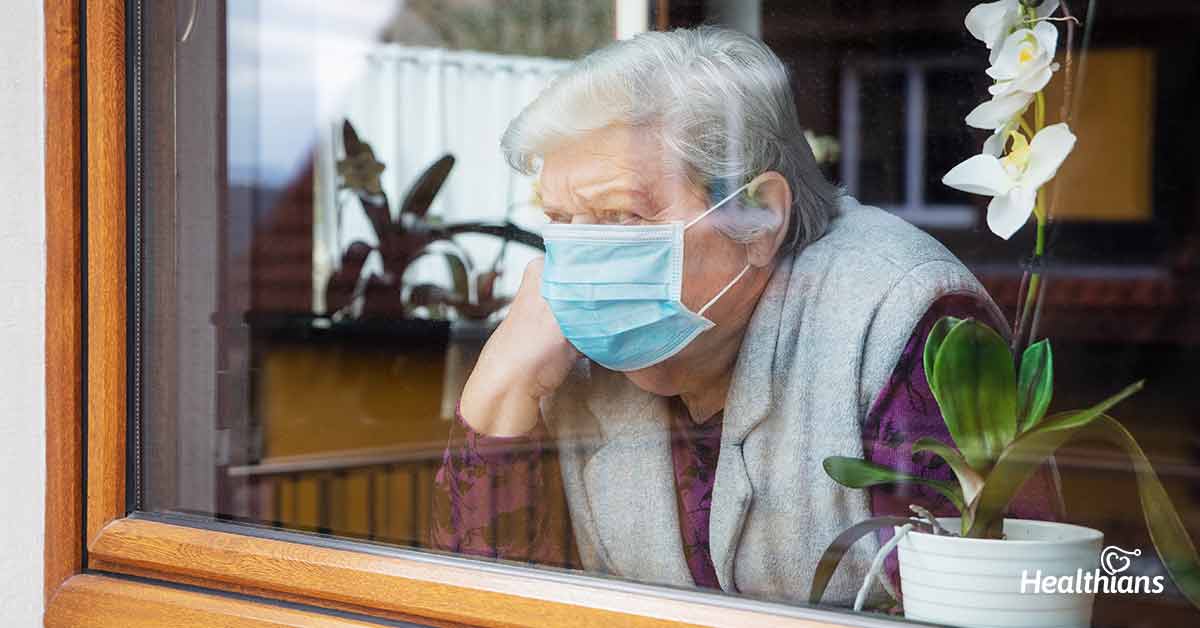Contributed by: Healthians Team
This global pandemic is continuing to put our mental fortitude to the test by leading us into some dark mental corners. Everyone has been talking about the virus’s life-altering effects in their lives for the past few months. It’s all over the news and social media, and it’s taking over most of our conversations. What isn’t being discussed, however, is how the virus may affect specific populations, particularly the elderly.
It is the elderly population around the globe who are facing the unthinkable. Older adults are especially vulnerable to the effects of the COVID-19 pandemic — with a higher risk of having mental health concerns during isolation, and fewer resources to mitigate them. Social isolation and loneliness are serious yet underestimated risks for the older adult population.
As a preventive measure during the COVID-19 pandemic, community organizations and houses of worship have shut doors until the pandemic eases. Older people are restricted from visits with friends and family members and are forced to stay home for extended periods of time. Social isolation may be especially detrimental to the family. This decreased social interaction poses a higher risk for social isolation and loneliness due to changes in health and social connections that can come with growing older. Also, for many older persons, barriers exist using technology, including limited technological literacy.
Health Implications
Older people face a significant risk of developing severe short- and long-term negative impacts due to physiological changes that come with social isolation.
The main mental and physical outcomes of social isolation and loneliness are associated with higher risks for:
- Hypertension
- Sleep disturbance
- Heart disease
- Weakened immunity
- Anxiety
- Changes in appetite
- Depression
- Cognitive decline
- Dementia, including Alzheimer’s disease
- Fear of Death
Experts and WHO have given different recommendations and possibilities to reduce feelings of social isolation or loneliness.
In this blog, we have analyzed the proposed activities to avoid mental and functional decline for seniors.
Interventions That Target Social Isolation & Loneliness in the Elderly
There are several recommendations to deal with this social isolation such as:
- Strengthen social connections with the help of internet apps, video chat, telephone support lines, or support groups.
- Incorporate changes in lifestyle, physical activity, and nutrition habits
- Undertake cognitive stimulation using apps or stimulating mental exercises, especially in those people with previous cognitive impairment
- Make time every day to communicate with family, friends, and grandchildren via email, social media, voice call, or text
- Cook a favorite family recipe
- Share some favorite songs or movies with other members of the household.
- Share your thoughts with someone you can trust if you feel overwhelmed by the pandemic
- Pick an activity that will help to nurture and improve established relationships.
- Maintain positive lifestyle behavior such as regular sleep and mealtimes, practicing a regular routine, alternating with different activities during the day
- Set steps to find some inner peace and safeguard your mental health when things are out of your control
- Make time for mindful morning routine and relaxation techniques
- Take regular breaks from watching, reading, or listening to news stories, including social media, and only rely on legit sources for information
- Remind yourself that you don’t have any control of the outcome of our current health crisis. Instead, try to remain positive.
Last Drops
Most importantly, remember that this pandemic will not last forever. The world may not have been prepared for this crisis, but you can prepare yourself to be on top of your game by staying positive.




